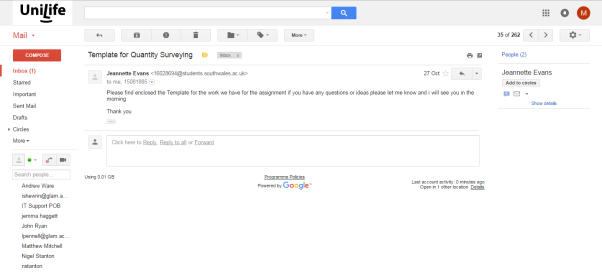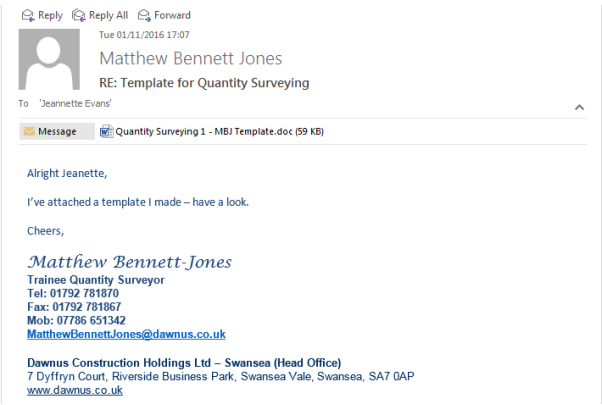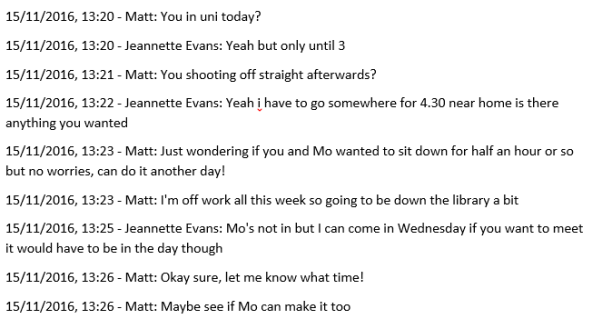Development of the Quantity Surveying Role
| ✅ Paper Type: Free Essay | ✅ Subject: Construction |
| ✅ Wordcount: 3691 words | ✅ Published: 10 Jul 2018 |
The report within analyses and documents the historical development of the Quantity Surveying role from inception to modern day practice, the roles and responsibilities of the Professional Quantity Surveyor and Contractor’s Quantity Surveyor, along with the importance and relevance of key skills to the role of the QS.
The Quantity Surveyor role was born in the United Kingdom, shortly after the birth of the Royal Institute of British Architects (RIBA) in 1834, due to the fact that Architects wanted to distance themselves from the surveying profession. The report goes on to talk about the many reports published by The Royal Institute of Chartered Surveyors (RICS), which identify the Quantity Surveying roles and how the future QS role will adapt to change.
Both the Professional and Contractor’s QS have roles and responsibilities in the Pre-construction, Construction and Post-construction phases on any given construction project. Both sides have similar responsibilities during the pre-construction phase – for example, each side will have a duty to carry out a form of estimation regarding the price of the works, which will require measurement/quantification. During Construction, the Contractor’s QS will be responsible for the day-to-day running of the project, including procuring subcontractors and submitting valuations to the client, whilst the Professional QS will be working with the client to ensure the Contractor’s QS’ valuations are factual and that they are certified in line with the contract terms. Post-construction activities on both sides would include activities such as Final Account procedures.
Finally, the last section of the report details the six key skills required by a Quantity Surveyor in order for a successful career; Numeracy, Verbal Communication, Written Communication, ICT Skills, Problem Solving and Self-management. It is important that an aspiring Quantity Surveyor/Project Manager is continually developing these skills, as they will play a large part of their working careers for the rest of their lives.
The purpose of this report is to write about the functions of the Quantity Surveyors and the roles each has within the Construction Industry. The team intends to accomplish the roles and responsibilities of the Quantity Surveyors (QS), Professional Quantity Surveyors (PQS), and Contractors Quantity Surveyors (CQS).
The content of the report will consider the importance of key skills such as, Problem Solving, Numeracy, Self-Management, Written, and Verbal Communication and IT Skills. To accomplish this the team will meet up and communicate with each other, plus research the subjects for the report.
All three team members will be involved with the evaluation of the report, once the report has a structure the team should meet-up to go over the order that each member will completing, after each of the members have finished the sections there should be another meet-up to check the work each as done and update the contents, once this is finished the report should be edited and completed. The resources for the report will come from the research in secondary published literature, and from sources based on the internet.
1.1 Introduction
This qualitative team research report will analyse and make use of secondary published literature to discuss the fundamental roles and responsibilities of a Quantity Surveyor. The report will highlight the key skills required to conduct the roles and responsibilities of a Quantity Surveyor. Quantity Surveying is an occupation that dates back as far as the 17th Century in Britain, when construction enterprises were measured and valued after they were designed and built. The definition of a Quantity Surveyor according to the renowned author Seeley (1997, p. 40), whose work is well documented in many books that cover all aspects of Quantity Surveying, “…A quantity surveyor is a professionally trained, qualified and experienced in dealing with these problems on behalf of the employer. He is essentially a cost expert whose prime task is to ensure that the project is kept within the agreed budget and that the employer obtains value for money”.
1.2 Constraints or limitations on the work
There have been several limitations on this report, the most important limitations being that the word count of the report has a maximum limit of 3000 words. Another was that group members did not always all come to the same conclusions, with differing opinions on subjects which could have led to opposing or contradicting views.
Another constraint was that with it being a group task, on occasions there were individuals that were not able to meet due to busy lifestyles and other plans. Other instances of this was when work schedules clashed with meetings, or that long distances meant the meeting was unviable, or the venue for the meeting was too small for everyone to sit and engage.
1.3 Any assumptions made
No assumptions have been made for the basis of this report.
2.1 Introduction
This section will document and cover a brief history of the Construction industry, the inception of the QS role in the industry, the historical development of the QS, along with the roles and responsibilities of the QS on both the private and contractor’s side.
2.2 Historical development of the QS role
The Construction Industry within the UK in the past was very different to the modern industry we know of today. The industry back then saw a Project Manager individually tender, procure and co-ordinate each discipline on site himself. However, the Napoleonic Wars of 1803 to 1815 would see the revolution of the Construction Industry in the United Kingdom. Cartlidge (2013) indicated that the government in power during the war were required to construct barracks to house the large amounts of soldiers that were to be crossing the English Channel. Due to time being of the essence, contracts were required to be let on ‘settlement by fair valuation based on measurement after completion of the works’. The many years that followed on from this saw the amount of projects in similar scenarios magnify, leading to the inception of the ‘general contractor’ in the United Kingdom.
The year of 1834 saw the birth of the Royal Institute of British Architects (RIBA). This professional association exclusively for architects, was formed on the basis that “architects wished to distance themselves from surveyors and their perceived ‘obnoxious commercvial interest in construction’” (Cartlidge, 2013, p. 7). This in turn led to the inauguration of the Quantity Surveyor in the UK.
The Royal Institution of Chartered Surveyors (RICS) report published in 1971 clearly defines the role of the Quantity Surveyor (RICS, 1971). The report seeks to acclaim the profession as specialists in the measurement and valuation of construction works (Perera, Pearson and Dodds, n.d.). The trio go on to state that the follow-up report also produced by the RICS, The Future Role of the Chartered Quantity Surveyor (RICS, 1983), identifies “the skills and knowledge base of the QS while identifying the scope for expansion and diversification of services” (Perera, Pearson and Dodds, n.d., p. 2).
2.3 The duties of the QS
According to Willmott Dixon (2016), the duties of Quantity Surveyors are to carry out a feasibility study, advise on potential sites and working out what a client can afford to build. They will present detailed valuations on information of costs for elements of work on an intermittent basis to aid payment for those works carried out to date. They will be responsible for organising the division of a project into component work packages, and awarding these work packages to smaller, more specialised construction companies such as the subcontractors and, in that process, finding the best deals. They are also responsible for dealing with contracts and legal matters. Managing costs to ensure the initial budget is not surpassed. Arranging the staff payments and, settling the final accounts. Plus, act as the financial advisors while monitoring progress for the client.
2.3.1 The roles of the Professional Quantity Surveyor
The Professional Quantity Surveyor (PQS), which is a quantity surveyor employed in private practice, has been prevalent in the Construction industry since the 1960s where cost planning services were introduced into their repertoire of duties in order to avoid tenders being returned over budget (Ashworth, Hogg and Higgs, 2013, p. 8). It is the PQS’ responsibility to give advice on all financial and contractual issues to all relevant parties, from pre-tender to completion of the project.
The Royal Institution of Chartered Surveyors (1998) published a set of competencies, titled “Table 1”, in which the assessment of professional competence would be measured against. The competencies are split into three different categories; basic, core and optional. PQS’ would need to fundamentally prove that they meet these competencies in order to reach chartered status.
2.3.1.1 Pre-Construction
The pre-construction roles and responsibilities would include functions such as initial budget setting with the client, quantification/measurement and possibly preparation of bills of quantities, dependant on the contract. The PQS would also have an input into the design stage of the project, and would work with the Project Manager (PM), architects/structural engineers and public authorities, as he/she would be involved from a very early stage. Following this, they would then work with the PM directly to give sound commercial advice to ensure the contract is awarded to the most favourable and most cost effective contractor.
2.3.1.2 Construction Phase
During the Construction phase, the PQS would still be expected to analyse and provide cost/commercial advice to the PM where needed, but he would mainly be working with the Contractor’s QS now to ensure that monthly valuations are submitted and valued correctly. Not only this, he/she would be responsible for attending site to review the applications submitted to confirm the values applied for. The term for this generally is ‘Cost Control’.
2.3.1.3 Post-Construction
After the Construction phase, has been completed, the PQS would endeavour to complete and settle the Final Account with the Contractor to ensure all monies, where due, are paid and all disputes settled. If it’s necessary, the PQS will also conduct and participate in arbitration or court proceedings to settle disputes that couldn’t be resolved previously.
Canadian Institute of Quantity Surveyors (CIQS, 2016)
2.3.2 The roles of the Contractor’s Quantity Surveyor
The Contractor’s QS is responsible for the performance of operations similar to those of the PQS, i.e., the measurement and pricing of construction work, utilising certain mechanisms for pricing such as Bill of Quantities. The Contractor’s QS handles the day to day running of the building/construction project. The construction programme is handled in three distinct sections. These are ‘Pre-Construction’, ‘Construction Phase’ and ‘Post-Construction’. Within these phases the Contractor’s QS plays a major role.
2.3.2.1 Pre- Construction
The Contractor’s QS will be required to carry out a Feasibility study for the project. They will also estimate the cost and what’s involved in the project based on measurements of the designer or clients’ sketches. The Contractor’s QS can compare the project with historical projects that his/her company has completed, and potentially gain an insight into how much the build may cost. The final part of the phase will lead to the final detailed estimate which is prepared by the QS and the Architect of the project which will lead to the evaluating tenders.
2.3.2.2 Construction Phase
The role of the Contractor’s QS will be to provide cash flow data so the client can start to arrange the finances needed to execute each stages of the project. They will also provide assessments on the cost effect so they can be ready for any changes that will appear during the Construction phase. During this time they can provide a project report. They can also manage disputes within the organisation (Clients, Designers and Building Contractors).
2.3.2.3 Post-Construction
The Contractor’s QS will be preparing and carrying out Final Account’s with subcontractors that have worked on site, as well as preparing their Final Account submission to submit to the client. The QS will liaise with the site team to ensure that all snags/defects are carried out in a timely manner. Once the defects liability period has expired within the Main Contract, generally 12 months after practical completion, the QS will be responsible for releasing any retention monies owed to the subcontractors.
3.1 Numeracy
Numeracy skills are one of the largest of the key skills within the QS’s repertoire, as they assist with the majority of the tasks a Quantity Surveyor carries out. For example, a Quantity Surveyor would be required to carry out numerous calculations for tasks, such as when he/she is required to produce tender documentation, i.e., Bills of Quantities etc. Measurement, or Quantification, would also require extensive numerical knowledge, as the task of producing a Bill of Quantities would require the QS to measure quantities from a drawing and implement the measurements into a suitable method of measurement, such as SMM7 or NRM2. The QS would also require handy numeracy skills when producing a ‘valuation’, or ‘application for payment’, as he/she will need to devise a document that can be used to apply for monies against particular activities, which would generally be against an Activity Schedule.
3.2 Verbal communication
Verbal communication is a very important skill for the Quantity Surveyor to have because they have to interact with the internal and external employees which are working on the project. For example, the QS has to have a formal relationship with the client and the architect whilst managing affairs on site. It is imperative that a positive rapport is built up using verbal communication with suppliers, as this will help to ensure materials are delivered on time, which in turn will assist in the overall project completion. Communication with all parties involved in a contract will be required, as the different parties involved all have the same end-goal; to complete the project. Verbal communication is essential in the day to day life of the QS, speaking face to face with clients, Project Managers and other key figures involved in the project. The QS will also be required to demonstrate his/her verbal communication skills in meetings, interviews and conferences.
3.3 Written communication
The written communication will be important from the beginning to the end of any work that need to be carried out and can be either:
- Letter
- Proposals
- Contracts
- Brochures
This will begin when a team has been assembled when minutes of the meetings will be taken. Once these notes have been written up into a report they will allow the team to get the relevant information.
By having these written down will allow anyone who needs to see the information they will be able to request them. They will also become a permanent record to reference information from.
3.4 IT Skills
ICT skills are quickly becoming the foreground of a Quantity Surveyor’s key skill inventory. The need for computer literacy and a high level of ICT skills has stemmed from the fact that computers are now a large part of how a QS operates. Generally, a QS will produce Bills of Quantities, send emails, write letters and even now, gain measurements from drawings using a computer. Most of these tasks require a satisfactory level of capability regarding ICT, and more of the complex tasks require further extensive knowledge. Ashworth, Hogg and Higgs (2013, p. 14-15) identify and backup the idea for the need of strong ICT skills, by stating that process skills include ‘computer literacy’.
3.5 Problem Solving
Problem solving is a very important skill required in the role of the QS. Due to the unpredictability of the Construction industry and the works that are carried out on site, the QS will be required to use his knowledge and devise an innovative solution to a problem which arises on site. The QS would be required to sufficiently and effectively identify and examine the problem to find a possible resolution to overcome the situation in order for works on the site to continue to progress towards completion. Demonstrating this skill will help the QS to achieve productivity and targets, as well as meeting key dates within a contract, i.e., Practical Completion, otherwise known as ‘PC’.
3.6 Self-management
To be successful in the management of yourself, Valchev (2016) states you should be self-confident. The best way to achieve self-confidence is being positive by getting rid of negativity, and be happy with every achievement whether they are big or small, State that you are smart and intelligent and finally talk with other positive people.
Valchev (2016) also states that you should be able to manage stress. To achieve your stress levels, you should relax, enjoy yourself, take holidays with people you love, take long walks and have hobbies or do activities you like.
You should have excellent organisational skills and can manage your time, which can be achieved by writing lists, make a schedule, prioritize and setting goals, break down large tasks into smaller tasks and balance work and rest and recreation.
You should be self-motivated, to achieve this you should make a list of your needs and desires listen to music when working on them and look at different books for inspiration this can expand your thoughts, and you should also have big dreams, live in the present moment, have dreams often and remember everything can be achieved.
Lastly you should also have a healthy lifestyle and balanced diet. With all of this will help productivity which will make the work go easily.
4.1 On roles and responsibilities of the QS
To conclude, Quantity Surveyors, have a vital part to producing efficient work in construction to reduce conflict by securing the most suitable procurement technique is selected, providing effective cost control procedure and ensuring value for money constantly.
They minimise the potential lapse by distribution of risk and identifying the value-adding activities in the project. Quantity Surveyors run an extensive choice of skills outside the traditional quantity surveying actions. The extended skills of quantity surveyors will help clients to achieve their needs and expectations.
In the current financial predicament, where cash flow and credit are paramount for clients, thus completion of project on specified time and within budget is important especially in the public sector which deal with the large projects and intensive capital. Quantity Surveyors can secure success for projects by the current technical and financial information and hence have vital influence in economic recovery.
4.2 On the importance of key skills development as aspirant quantity surveyors or project managers and future specific recommendations you have for your key skills acquisition and development
The key skills that have been identified above; numeracy, verbal communication, written communication, IT skills, problem solving skills and self-management skills are all critical to an aspiring Quantity Surveyor/Project Manager. They are the necessary foundations to a successful career in the Construction industry, as without these crucial skills, a Quantity Surveyor/Project Manager would struggle to perform his or her day-to-day tasks.
The development of these key skills is necessary in order to progress and enhance the opportunities available to you throughout your working career. Without the development of these skills, you will not be able to achieve your life goals, which will decrease your confidence and will lead to you having a poorer quality of life. However, if these skills are developed and maintained, your confidence would be boosted and you would live a far more comfortable, fulfilled and higher quality life.
References
Ashworth, A., Hogg, K., Higgs, C. (2013) Willis’s Practice and Procedure for the Quantity Surveyor. 13th edn. Chichester: John Wiley & Sons, Ltd.
Brandon, P. (1990) Quantity Surveying Techniques: New Directions. Oxford. Blackwell Scientific Publications
Canadian Institute of Quantity Surveyors (2016) Professional Quantity Surveyor. Available at: http://www.ciqs.org/english/designations-defined-professional-quantity-surveyor (Accessed 16 November 2016).
Cartlidge, D. (2013) Quantity Surveyor’s Pocket Book. 2nd edn. Oxfordshire: Routledge.
Manker, A. D. (2016) What Is Written Communication in Business? Definition, Types & Examples. Available at: http://study.com/academy/lesson/what-is-written-communication-in-business-definition-types-examples.html (Accessed 19 November 2016).
Perera, S., Pearson, J., Dodds, L. (n.d.) Alignment of Professional, Academic and Industrial Development Needs for Quantity Surveyors. Northumbria: Northumbria University.
Rahmani, F. (n.d.) Importance of Quantity Surveyors for public sector organisations in the prevaling recession. Available at: http://www.academia.edu/466357/Importance_of_Quantity_Surveyors_for_public_sector_organisations_in_the_prevaling_recession (Accessed 19 November 2016).
Royal Institution of Chartered Surveyors (1998) The APC Requirements and Competencies. London: Royal Institution of Chartered Surveyors.
Seeley, I. H. (1997) Quantity Surveying Practice. 2nd edn. London: Palgrave Macmillan.
Valchev, M. (n.d.) Self-Management Skills | List, Definition, Tips & Techniques. Available at: http://www.businessphrases.net/self-management-skills/ (Accessed 19 November 2016).
Willmott Dixon (2016) The role of a Quantity Surveyor | Willmott Dixon. Available at: http://www.willmottdixon.co.uk/careers/working-for-us/the-role-of-a-quantity-surveyor (Accessed 16 November 2016).
Ashworth, A., Hogg, K., Higgs, C. (2013) Willis’s Practice and Procedure for the Quantity Surveyor. 13th edn. Chichester: John Wiley & Sons, Ltd.
Brandon, P. (1990) Quantity Surveying Techniques: New Directions. Oxford. Blackwell Scientific Publications
Canadian Institute of Quantity Surveyors (2016) Professional Quantity Surveyor. Available at: http://www.ciqs.org/english/designations-defined-professional-quantity-surveyor (Accessed 16 November 2016).
Cartlidge, D. (2013) Quantity Surveyor’s Pocket Book. 2nd edn. Oxfordshire: Routledge.
Manker, A. D. (2016) What Is Written Communication in Business? Definition, Types & Examples. Available at: http://study.com/academy/lesson/what-is-written-communication-in-business-definition-types-examples.html (Accessed 19 November 2016).
Perera, S., Pearson, J., Dodds, L. (n.d.) Alignment of Professional, Academic and Industrial Development Needs for Quantity Surveyors. Northumbria: Northumbria University.
Rahmani, F. (n.d.) Importance of Quantity Surveyors for public sector organisations in the prevaling recession. Available at: http://www.academia.edu/466357/Importance_of_Quantity_Surveyors_for_public_sector_organisations_in_the_prevaling_recession (Accessed 19 November 2016).
Royal Institution of Chartered Surveyors (1998) The APC Requirements and Competencies. London: Royal Institution of Chartered Surveyors.
Seeley, I. H. (1997) Quantity Surveying Practice. 2nd edn. London: Palgrave Macmillan.
Valchev, M. (n.d.) Self-Management Skills | List, Definition, Tips & Techniques. Available at: http://www.businessphrases.net/self-management-skills/ (Accessed 19 November 2016).
Willmott Dixon (2016) The role of a Quantity Surveyor | Willmott Dixon. Available at: http://www.willmottdixon.co.uk/careers/working-for-us/the-role-of-a-quantity-surveyor (Accessed 16 November 2016).
List of appendices
- Group Diary
- Evidence
Group Diary
|
Date |
Activity |
Actions agreed |
Type of evidence |
|
21 Oct 2016 |
Message from Matt |
Meeting |
Message print-out (see Figure 1 in Appendix 2) |
|
27 Oct 2016 |
Email to the two members |
Template of the report |
Screenshot (see Figure 2 in Appendix 2) |
|
01 Nov 2016 |
Email to Jeannette from Matt |
Revised template |
Screenshot (see Figure 3 in Appendix 2) |
|
15 Nov 2016 |
Message from Matt |
Rearranging some of the report and organise a meet-up for the next day |
Screenshot (see Figure 4 in Appendix 2) |
|
24 Nov 2016 |
Message to Mo |
Requesting work |
Screenshot (see Figure 5 in Appendix 2) |
|
30 Nov 2016 |
Email to Matt |
Dropbox invite with the assignment |
Screenshot (see Figure 6 in Appendix 2) |
Evidence
 Figure 1
Figure 1
Figure 2

Figure 3

Figure 4 (snippet of conversation from WhatsApp)

Figure 5

Figure 6 (emails to Matt)

Cite This Work
To export a reference to this article please select a referencing stye below:
Related Services
View allDMCA / Removal Request
If you are the original writer of this essay and no longer wish to have your work published on UKEssays.com then please click the following link to email our support team:
Request essay removal



